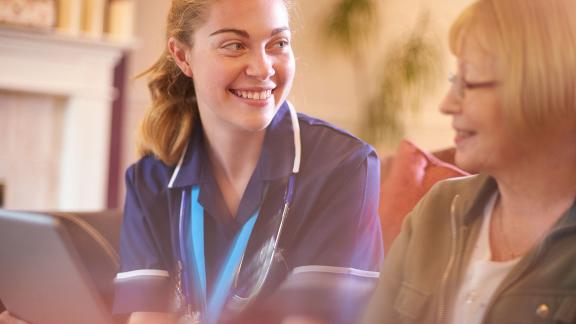Self-reflection toolkit

In partnership with Skills for Care and Partners in Care and Health, we have developed a self-reflection toolkit designed for personal self-reflection, supervision and team development across every part of social care and health.
In the summer of 2024, we held two round tables to explore the impact of peak demand. We brought together representation from people across the whole workforce, including acute care, primary care, mental health, Integrated Care Boards (ICB’s), NHS health and wellbeing, residential care, domiciliary care, the voluntary sector, organisations supporting people with a learning disability sector and occupational health.
From these conversations, we recognised the need for a tool to help people think about how working together during times of peak pressure can be helpful. Creating a space allows people to recognise the value of working together during the more difficult times.
The self-reflection toolkit is for everyone working in social care and health roles, including managers, teams, departments and partners.
There are two versions of the self-reflection toolkit. One with a number scale to rate your response between 1-5 and one with open text boxes, enabling you to go into more detail about their answers. We have made both options available because people valued having the choice to use either, as it suits different personalities.
How to use the toolkit
We recommend using the toolkit during times of peak pressure, such as winter, high sickness absence rates, high vacancy rates, annual leave periods, after acute local emergencies, or high-density local events or outbreaks of viruses and other challenges.
We recommend that leaders and managers first use this tool on themselves before introducing it to their teams and colleagues.
When using the toolkit with your team, establish clear ground rules for the discussion, such as respecting diverse viewpoints and maintaining confidentiality.
Please note that this toolkit is not a resource for managing your own or other people’s performance.
Get in touch
If you’ve come across additional resources that you’ve found helpful, we’d love to hear about them and share them with others. Additionally, we’d be delighted to know how you’ve used our toolkit and the impact it has had.
Please share your stories with us by emailing us.



